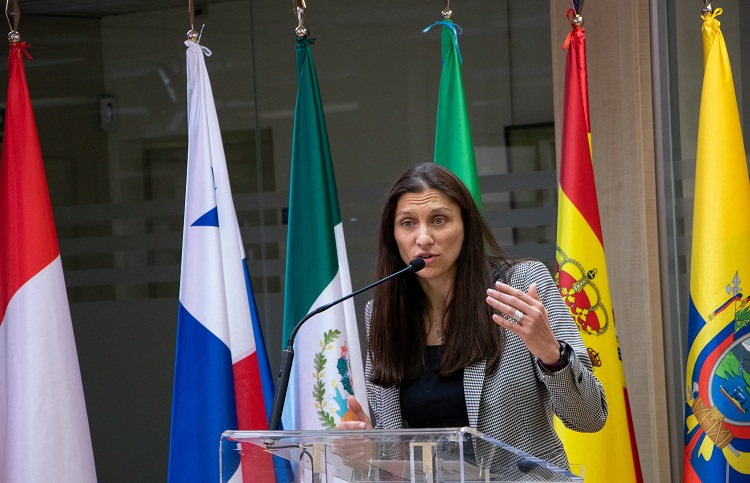The Diplomat
The Organization of Ibero-American States for Education, Science and Culture (OEI) has launched its Regional Program for Digital Transformation in Education, an initiative to support Ibero-American countries in boosting the digitalization of their education systems through hybrid models “in a changing and accelerated context.”
The digital transformation in education program, which is part of the 2030 Agenda for Sustainable Development, focuses on the consolidation of hybrid, more flexible and inclusive models, which will be incorporated into national education systems in the region. Many of these models have already begun their transition to digitalization from their respective realities, which makes the program a very powerful initiative “because it does not start from scratch,” according to the OEI Director of Education, Tamara Díaz, during the event.
The program has multiple allies, such as the Inter-American Development Bank (IDB), the Development Bank of Latin America (CAF), the Spanish Agency for International Cooperation (AECID), the Profuturo Foundation and the Complutense University of Madrid, among others. The first evaluation of its operation will be carried out in 2023.
“This program is not just one more of the 400 initiatives that the OEI has underway in the region,” said the secretary general of the organization, Mariano Jabonero, during the program’s launching ceremony, held last Tuesday at the headquarters of the international organization in Madrid and in which also participated, Apart from Jabonero and Díaz, the Minister of Education and Culture of Uruguay, Pablo da Silveira, and, telematically, the president of the IDB, Mauricio Claver-Carone, and the Ministers of Education of Colombia, El Salvador, Spain and Panama, María Victoria Angulo, Carla Hananía, Pilar Alegría and Maruja Gorday, respectively, also participated in the event.
“This is an initiative that seeks to politically, socially and financially mobilize different actors to overcome the 0.78% of the regional budget that is earmarked to overcome the effects of the pandemic in education,” Jabonero continued. For his part, Minister Da Silveira declared that “the future is hybrid” because “digital education is valuable, but it does not replace face-to-face education for children and young people”. “The affective component, proximity, are essential to create learning climates,” he warned.






